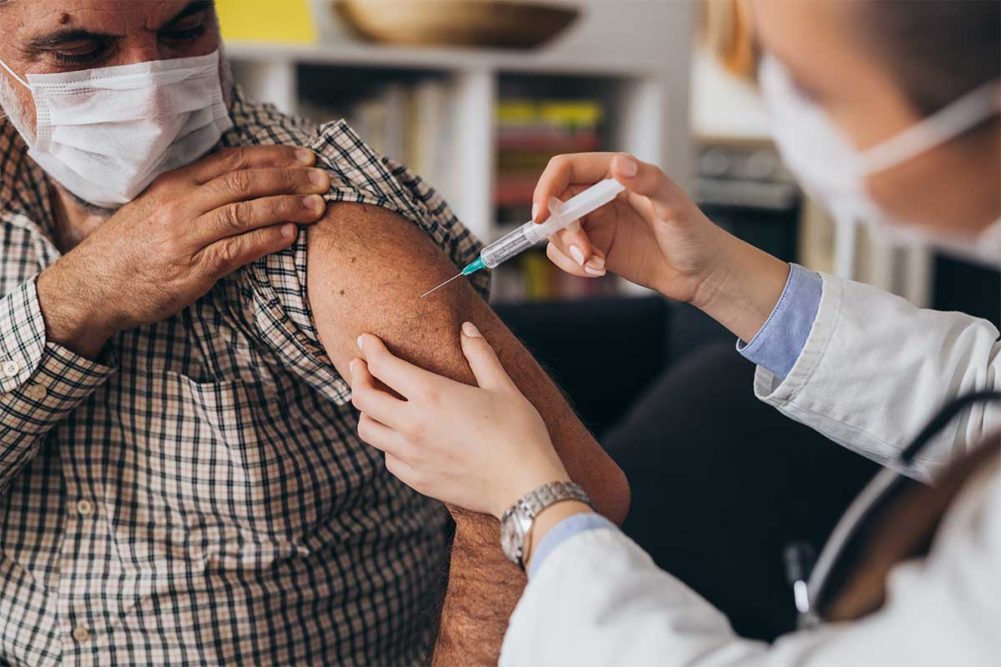In a webinar hosted by the American Bakers Association (ABA), Barry Hartstein, shareholder at Littler and group leader of Littler’s Vaccination Working Group, explained the legal and practical implications of coronavirus (COVID-19) vaccine for wholesale baking companies.
In light of the distribution of COVID-19 vaccines, Hartstein said it was still important to note that COVID-19 protocols need to stay in place since vaccines have not been proven to prevent transmission. He also suggested that safety priorities need to continue to evolve as the CDC makes recommendations. Ultimately, though, states have the final say on COVID-19 regulations.
As far as guidance from the US Equal Employment Opportunity Commission, the EEOC neither encourages nor discourages mandatory vaccinations. Hartstein said that either decision should be handled with care due to the issues that may arise.
In either case, care must be taken to keep anonymous those that choose not to be vaccinated in order to avoid subjecting employees to a hostile work environment. Because of religious and disability accommodation, refusal to get the vaccination does not necessarily mean termination. EEOC guidance suggests an individualized assessment pertaining to the “direct threat” of the employee, which may merely exclude them from the workplace. Even if the direct threat standard can be met, employers should still consider making reasonable accommodations to keep the employee working even if not vaccinated, such as remote work.
Hartstein also said it may be difficult to prove that the vaccine is necessary, since people have already been working together without the vaccine for a year now. Termination is cautioned against.
“Companies need to take care to ensure that information about whether or not someone has been vaccinated is kept confidential,” Hartstein said, adding that this is to reduce negative perceptions among employees in the workplace.
As far as third-party implications go, employers have the right to request proof of vaccination, even if vaccination is not mandatory amongst their own employees. If a mandatory vaccination program is put into place, then third parties coming on site without proof could undermine the employer’s program.
“If you didn’t require it from your temporary workers, then even the effectiveness of your own policies would be in doubt, because you’d be bringing individuals on board who are not vaccinated,” he said. “In some respects it’s a slippery slope.”
The question of whether employers should pay for time spent getting vaccines, Hartstein said, depends on whether vaccinations are required, which state the employee works in and the principal work of the employee.
If vaccination occurs on the premises of the workplace, or at the direction of the employer during regular working hours, the federal Fair Labor Standards Act states that vaccination time should be compensated. If the vaccination is recommended and not mandated, then the employee may not need to be compensated, unless vaccination is happening at the worksite during an employee’s work time. However, Hartstein warned, certain states have extraneous jurisdictions that affect how these decisions must be made.
Some companies may consider offering incentives for employees to receive the COVID-19 vaccination. These companies need to take into consideration how those with religious or disability accommodations might also qualify for incentives, Hartstein said.
He also recommended, in the case of unionized environments, working with labor organizations and making them a part of the vaccination program.
Hartstein suggested mindfulness of protection for employee refusal. Given the emergency use authorization (EUA) status, he said, there have been concerns raised over the safety of the vaccine. Section 7 of the National Labor Relations Act (NLRA) also states that protesting mandatory vaccination could be viewed as “protected concerted activity.”
All in all, Hartstein said these issues are based mostly on whether employers decide to recommend or mandate vaccinations, and recommended mindfulness of the varying perceptions and consequences of this decision.





